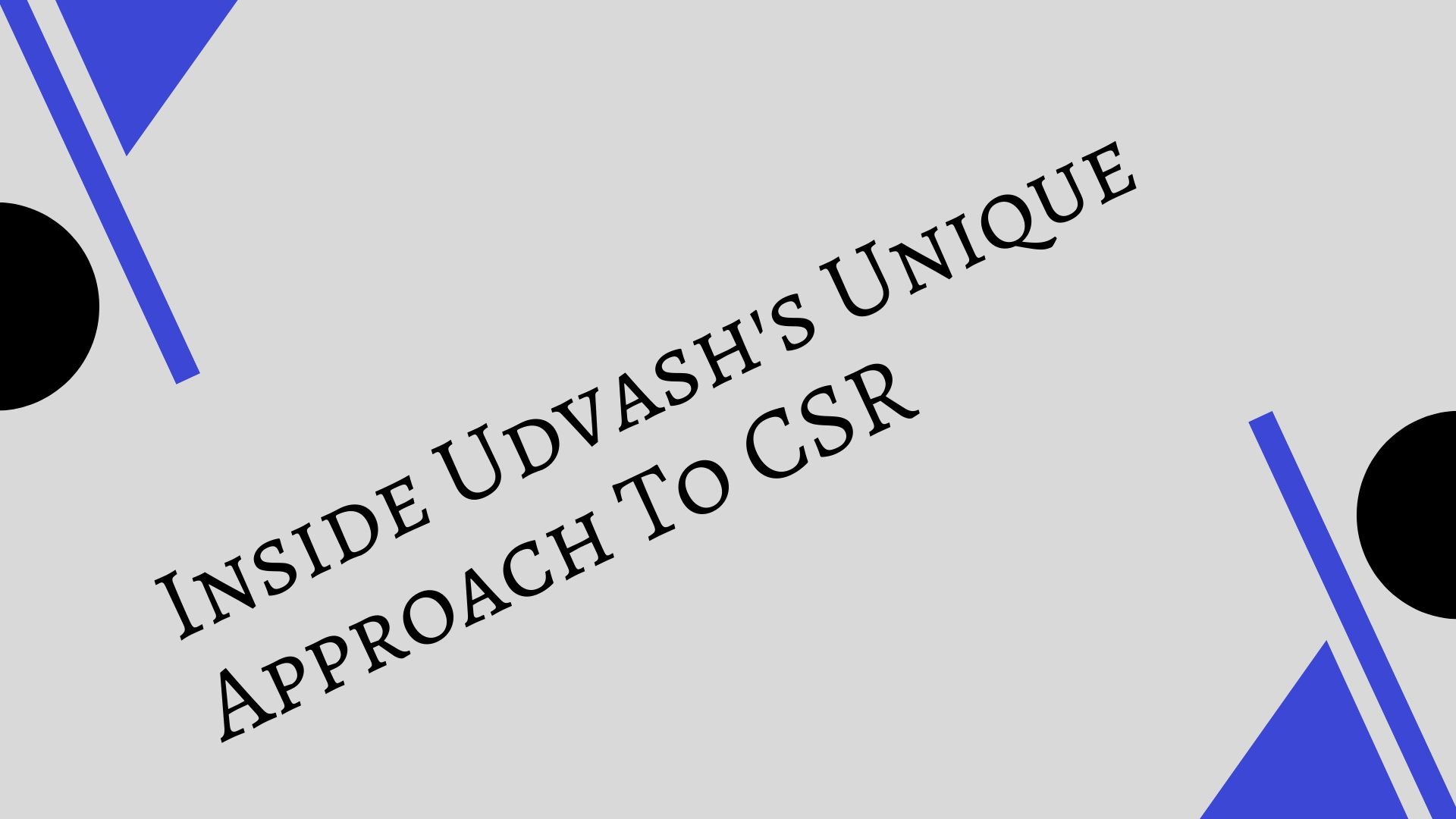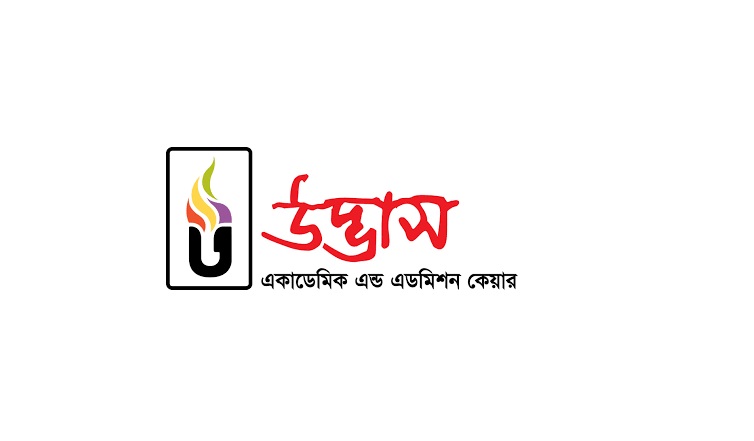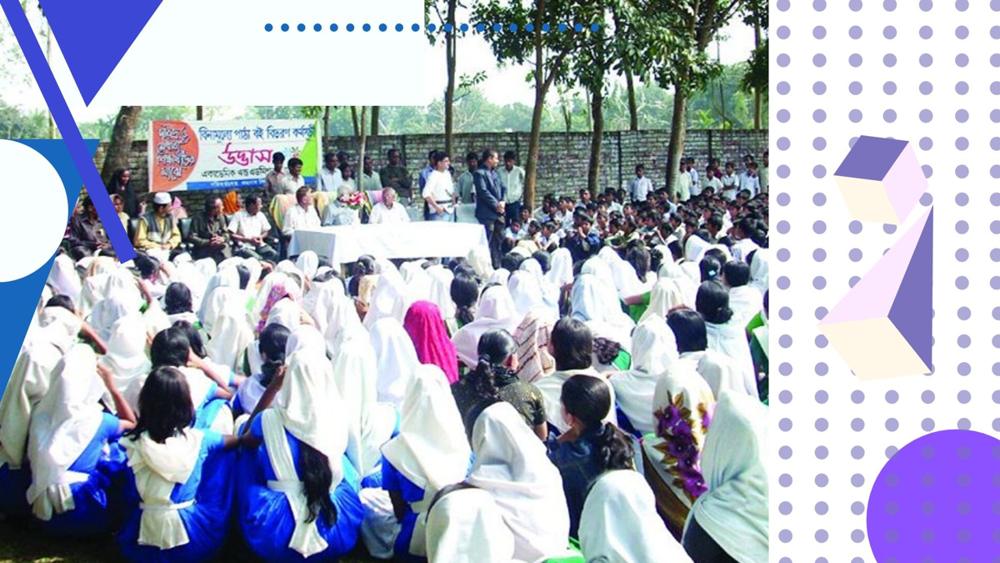
The problems that our world is facing today are too big for us to tackle alone. It is a collective call. All of us need to participate. Contribute. Collaborate. If people who have a lot, give back to society. If every one of us helps other fellow humans who are in need. If we could inspire each other to give back to society. If kindness exceeds cruelty. If generosity overtakes personal greed. If each of us could inspire one more person to become a better human being. The world will change for the better. No one of us alone is enough to make a meaningful difference in the face of the grand challenges our world is facing today. But together we can change the world.
This philosophy is at the heart of Udvash’s CSR programs. Udvash runs a number of CSR programs. It has a financial aid program for students who are in need of financial support. It runs a blood donation program where Udvash students donate blood and a few other programs around helping students in need in remote areas. The thread that connects all these programs is a built-in philosophy to encourage and inspire students to support people in need and help each other.
For example, Udvash takes a pledge from students who receive its financial aid that they would make an equal amount of contribution to the society, be it through helping another student who is in need, once they graduate and become capable of doing that or in any other form.
The beauty of the program lies not only in the fact that it enables a student who is in need to continue education and do well in life, but it also provides an important education that we all are responsible for each other and should be helpful to others. Udvash says if it can inspire enough people to become OnnoRokom Manush, the world will automatically be a different place.

From the inception, Udvash has been generous in supporting students who are in need of financial aid. Students with financial need routinely receive financial aids upon request. While Udvash’s financial aid program is a well-structured CSR program today, it started organically in a rather scrappy manner.
In the early days, there was a little process to run the program. It continued that way for a while without any formal records or process. The process was an informal commitment from each recipient that they would try to help someone in need when they become capable after a few years.
As Udvash grew and the number of requests for financial aid started to come at volume, the company eventually felt a need for putting together a process to manage its scholarship program. In the following years, it added a few other initiatives along with the financial aid program and formed a new CSR department within the organization.
Today, Udvash has a full-fledged CSR department led by Sumon Kumar Saha. Mr. Saha joined Udvash in 2012 and has been looking after the CSR department of Udvash.
“I joined Udvash in 2012. I have been working on structuring our CSR programs. We have a few programs under the CSR department. The biggest one is our financial aid or scholarship program for the students who are in need. The program has evolved over the years and the number of students we support every year has grown as well. We also have a blood donation program.”
The beauty of the program lies not only in the fact that it enables a student who is in need to continue education and do well in life, but it also provides an important education that we all are responsible for each other and should be helpful to others. Udvash says if it can inspire enough people to become OnnoRokom Manush, the world will automatically be a different place.
As I mentioned earlier, the birth of Udvash’s financial aid program took place in an organic setting. It started out of necessity and without much formal process. Students with financial need would come to Udvash office and request a waiver in fee and usually would receive a waiver.
This became a pretty large workload when the number of Udvash branches grew and the number of students exploded. Hence, Udvash decided to put together a process to manage the entire CSR department.
Mr. Sumon explains the program and process to us. “We have developed a process for CSR activities over the past few years. For example, for financial aid, students now first inform the in-charge of a branch about his/her problem. Previously, students used to call Shohag bhai (Mahmudul Hasan Sohag, Chairman of OnnoRokom Group) directly because he used to look after it since the program was quite limited at the time. It is no more the case. Today, when anyone calls Shohag bhai, because he is easily accessible, he passes the student to the CSR department. When a student informs the in-charge, we first try to verify the problem and then issue an application form. Followed by application, we do a short interview and meet both students and their parents during the interview. Through the process, we attempt to understand the problems of a student and arrange aid accordingly. Our process is smooth and we make an effort to shorten the entire process.”
Most students who apply for financial aid at Udvash receive partial or full sponsorship. Udvash has established a principle from the beginning of the program that says every student who has a genuine need and applies for aid must receive the support. Even if it means some not so needy ones also get the aid.
It has also introduced components like a pledge to give back from the recipients. When a student gets financial aid from Udvash, they need to make a commitment that they would give back, if not more, an equal amount of support, to someone in need when they will become capable of doing so. Udvash says the ambition is to create a domino effect of the common good.
Udvash runs a number of CSR programs. It has a financial aid program for students who are in need of financial support. It runs a blood donation program where Udvash students donate blood and a few other programs around helping students in need in remote areas. The thread that connects all these programs is a built-in philosophy to encourage and inspire students to support people in need and help each other.

“We take a written statement from every recipient of the scholarship that they would give back an equal amount of support to someone in need once they become capable.”
Over the years, Udvahs has refined this pledge and how people make it. It has added a timeline and established a process to follow-up based on the timeline. They also need recipients of the scholarship to write how much they would give back in a specific amount. “There is a timeline like 5 to 7 years that we ask our students they could think of before making a similar contribution to society.” Students choose the timeline and they also choose how much money they would donate in return.” Explains Mr. Sumon.
Initially, this commitment was mostly informal. Students used to make a verbal commitment. There was no mechanism to follow-up with the students afterward. However, this has changed in the past few years. Udvash has become serious about the commitment and established a process to maintain records of commitment and communication details of the recipient students.
“I can’t give you an accurate number of students that have been benefited through the program so far because we started keeping documents only from 2012. Before 2012, the process was mostly verbal. Then we realized that in order to realize the expected impact through the program, we have to establish a process.” Today, the process allows Udvash to maintain a relationship with the students and follow up on their current status and status of their pledge.
From last year, Udvash started making calls to the previous recipients of scholarships to give them sort of a reminder. They ask students about their current status and remind them that they have made a commitment to help other needy students and should be mindful of that.
“The idea of our CSR program and taking a pledge from students is a brainchild of Shohag bhai. He thinks that we can’t change society alone. We need a collective effort to bring meaningful and scalable social change. The idea is that I alone can’t help many people. My personal capacity is limited. But if I can help 5 people and then inspire them to help another 5 and if that chain continues, it will gradually change society.”
The biggest lesson from Udvash’s financial aid program does not lie in how good an initiative it is rather in the fact that we could change the world if we could inspire enough people to take small responsibility of doing some public good. What best approach could there be to inspire young people to serve their community than showing them an example and a path?
The idea of financial aid and keeping a giving back pledge from recipient students came from Udvash founders. Mr. Sumon explains.
“The idea of our CSR program and taking a pledge from students is a brainchild of Shohag bhai. He thinks that we can’t change society alone. We need a collective effort to bring meaningful and scalable social change. The idea is that I alone can’t help many people. My personal capacity is limited. But if I can help 5 people and then inspire them to help another 5 and if that chain continues, it will gradually change society.”
Over the years, Udvash has expanded its CSR program from financial aid to issues like blood donation and helping out students in rural areas in Bangladesh.
Today, Udvash has a strong blood donation program that Mr. Sumon looks after. “We keep the blood groups and other information of our students if they are willing to donate blood. We get a lot of phone calls from strangers who need blood and come to us. We try to support as much as possible.”
Over the past years, Udvash has developed a robust blood donation program that routinely helps people in Dhaka and beyond.
Apart from offering financial aid to its own students, Udvash has also developed programs through which it helps disadvantaged students in rural areas. It has developed programs like free textbook distribution and financial aid for needy students among others. “Before I joined, Shohag bhai used to personally help needy students in rural areas who are not our students. Now, we have institutionalized, to some extent, all of these programs.
When there is a scholarship program or discount or waiver available, it is natural that many people, regardless of their real need, would try to avail the opportunity. This routinely happens at Udvash. “People tend to take advantage of the program,” says Mr. Sumon. Since our review process is relatively relaxed, people try to take advantage of it.” This demands for a tightening of the process. However, that’s not how things work at Udvash.
Udvash has made it into a policy that any student with a need for help must not be deprived of support from Udavsh due to this challenge of verification. “We have a strict policy from the management, it is better to give aid to some students who are probably not in genuine need instead of failing to help students who are in genuine need due to a stringent process.”
This principle guides all the CSR activities at Udvash.
Mr. Sumon says Udvash does not have a grand ambition. “We do want to make a difference in the society,” he adds, “but we don’t think we alone can achieve that goal.”
The idea is more of united we stand than trying to do it all by yourself. Udvash’s philosophy is that people are at the center of any positive change. If we have more OnnoRokom Manush in our society, the society will change. But to scale the model, it needs multiplier and the best multiplier Udvash has found is helping people and then inspiring them to help more people, which, Udvash hopes, would unleash a domino effect and eventually bring a small positive change to the world.
The world would be a better place if more human beings treat their fellow human beings with kindness and love. That principle drives all of Udvash’s CSR initiatives.
(This is a branded content developed in collaboration with Udvash communication team)
